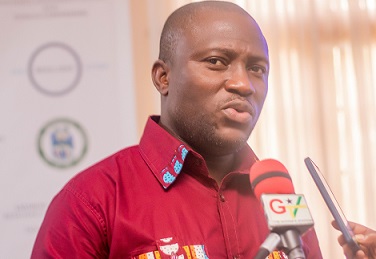
Resilient cities 'CoLab" completed, focus on inclusive and safe streets in Accra
Accra, Ghana – Organized under the auspices of the Accra Metropolitan Assembly, 100 Resilient Cities – Pioneered by The Rockefeller Foundation (100RC), the Woodrow Wilson School of Public and International Affairs at Princeton University, and the University of Pennsylvania Institute for Urban Research last week held a Collaborative Design Workshop (CoLab) on Inclusive and Safe Streets.
The two-day convening, held at the new AMA City Hall at Kinbu Gardens, concentrated on opportunities to improve the transportation, economic, and social functions of the city’s major street intersections.
Over the past year the AMA, with support from 100 Resilient Cities, has engaged a wide range of local stakeholders in developing a comprehensive Resilience Strategy – a response to the city’s diverse challenges and roadmap for the future ahead.
The CoLab focused on the convergence of two prominent themes emerging from the strategy development process: strengthening urban mobility and transportation; and recognizing, embracing, and supporting the informal sector.
The results from a robust exchange of research findings, ideas, and actionable concepts between stakeholders and researchers have added to the conversation on how to design and manage improved intersections and their related street corridors, to advance Accra’s overarching resilience.
A 100RC CoLab is a collaborative, expedited process between municipal government, local and international subject matter experts, and local stakeholders.
Last week’s workshop built upon current work on road safety by the Accra Metropolitan Assembly with the Bloomberg Philanthropies Initiative for Global Road Safety (AMA-
“As a city undergoing rapid urbanization, Accra is working to build its future shape now,” said Jeb Brugmann, Vice President for Solution Development & Innovation at 100 Resilient Cities.
“The CoLab sought to bring an urban design and resilience lens to the difficult challenge of better designing and managing these particular kinds of public spaces, where a wide range of formal and informal sector uses
With the increase in both Accra’s population and motor vehicle numbers and traffic, there has been a surge in competition for the use of Accra’s streets, which function as market spaces as well as transportation corridors.
Ahead of the workshop, the international researchers joined their local counterparts to analyze two road intersections as case studies: Wato Junction and Cathedral Junction, both in Accra Central.
Through facilitated roundtable exercises and focused group discussions, CoLab participants worked to identify specific actions and resources required to improve the safety and accessibility of these intersections and beyond.
“This project has offered the opportunity for participants drawn from many areas, to set aside time to reflect on and develop collaborative approaches to critical issues and begin to forge the multi-stakeholder partnerships that will bring their ideas to reality,” said Eugenie L. Birch, visiting
Apart from producing a set of specific design recommendations, the CoLab additionally worked to cement relationships between government and key stakeholders, to address the challenges of increasing Accra’s resilience through improvements
About 100 Resilient Cities—Pioneered by The Rockefeller Foundation
100 Resilient Cities - Pioneered by The Rockefeller Foundation (100RC) helps cities around the world become more resilient to social, economic, and physical challenges that are a growing part of the 21st century.
100RC provides this assistance through: funding for a Chief Resilience Officer in each of our cities who will lead the resilience efforts; resources for drafting a resilience strategy; access to private sector, public sector, academic, and NGO resilience tools; and membership in a global network of peer cities to share best practices and challenges. For more information,
